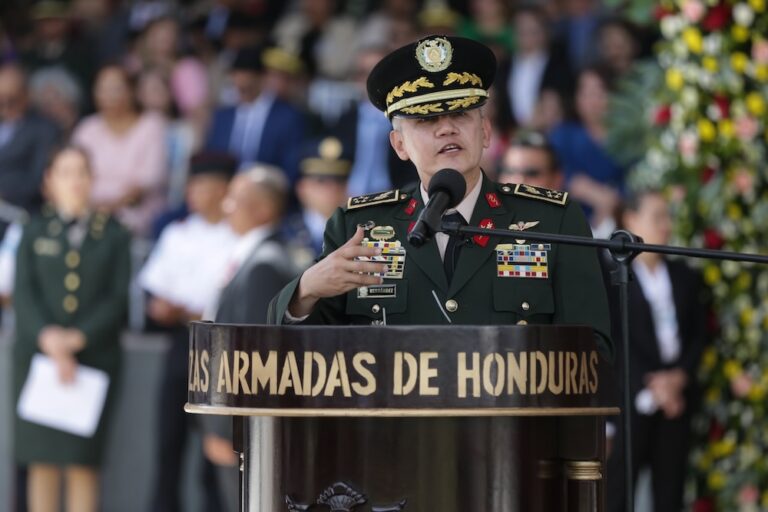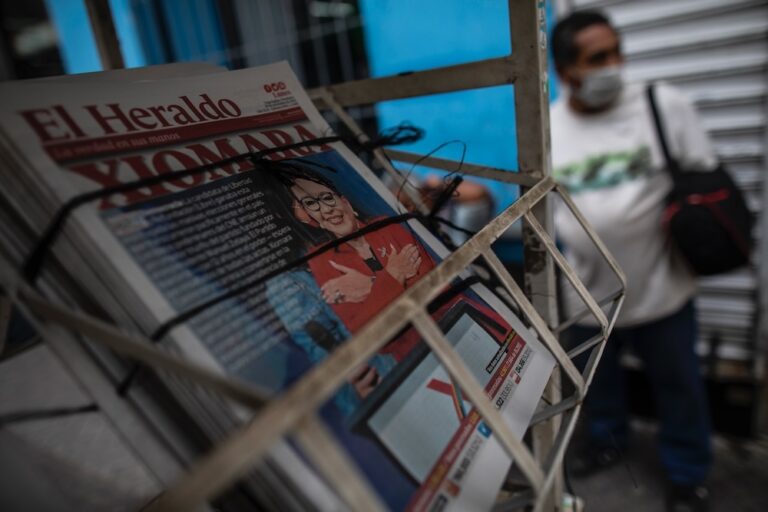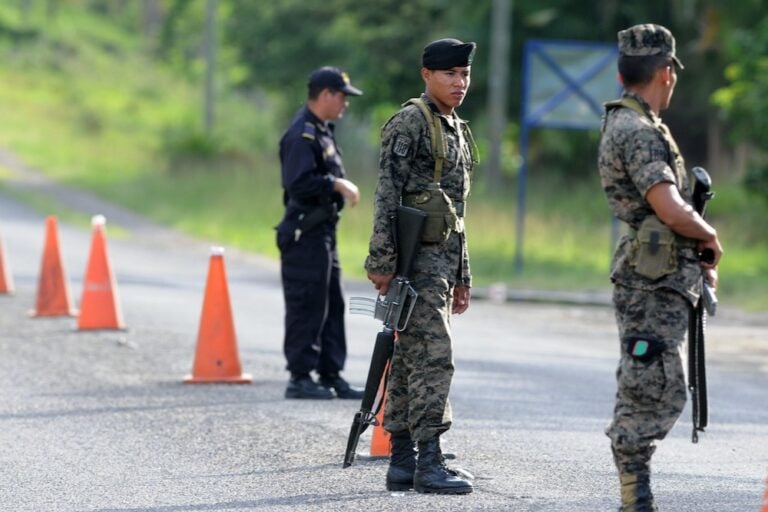IFEX-ALC reiterates its demands for an end to attacks on journalists and the legal persecution of community-based media outlets.
(IFEX-ALC/IFEX) – 17 March 2011 – The International Freedom of Expression Exchange-Latin America and Caribbean (IFEX-ALC), is an Alliance of 17 IFEX members in Latin America and Caribbean who work together to promote and defend free expression in the region. The Alliance intervention in the UPR session is made with the support of the International Network of Human Rights (RIDH), a partner organisation based in Geneva.
As a regional body dedicated to promoting the right to freedom of expression, we welcomed the willingness shown by the Honduran government to adopt and commit to complying with the recommendations outlined in the report that emerged from the UPR process. In particular, we noted the government’s promise to investigate the assassinations and other attacks on journalists and to legally recognise community based media.
However, despite the fact that on November 4, 2010 Honduras made these commitments to the Working Group, the free expression situation continues to deteriorate in this country.
Ten journalists were murdered in Honduras in 2010. One of these, Henry Suazo, was killed since the first phase of the UPR process took place in November 2010. To date none of the cases have been thoroughly investigated. At the same time, certain precautionary measures which were requested by the Inter American Commission on Human Rights (IACHR) have still not been fully implemented. Subsequently, impunity continues to prevail and journalists continue to face a great deal of risk while carrying out their profession.
One noteworthy result of the UPR process was the Honduran government’s promise that it would amend its telecommunications legislation to bring it into line with “international human rights agreements and standards”, vis à vis the legal status of community radio stations. Despite this commitment, the government has failed to address this issue and on the contrary, attacks on community radio broadcasters are on the increase, with government officials being responsible for some of the incidents. This prompted the Office of the Special Rapporteur for Freedom of Expression of the IACHR (see: http://www.cidh.oas.org/relatoria/showarticle.asp?artID=831&lID=1 ) and the United Nations Special Rapporteur on the promotion and protection of the right to freedom of opinion and expression (see: http://www.cidh.oas.org/relatoria/showarticle.asp?artID=831&lID=2 ) to issue special communiqués expressing concern over the incidents. Nevertheless, to date there has been no response from the government.
As a result of the intense international lobbying carried out by the IFEX-ALC in the lead-up to and during the UPR session on Honduras, the Honduran authorities vowed to investigate the murders and other attacks on journalists. However this has been not been the case and the IFEX-ALC reiterates its demands for an end to attacks on journalists and the legal persecution of community-based media outlets. The Alliance also urges the government to promptly investigate free expression violations in Honduras and adopt effective measures so that no further violations of this right are committed.


